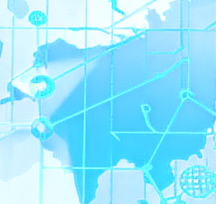

What’s so great about Tumbleweed’s KDE? Honestly asking, because I am using it, but don’t see a ton of a difference as compared to Kubuntu. Not that I am actively looking for differences.


What’s so great about Tumbleweed’s KDE? Honestly asking, because I am using it, but don’t see a ton of a difference as compared to Kubuntu. Not that I am actively looking for differences.


Since you are narrowing down on Tumbleweed, here are my 2¢: After more than 15 years of Kubuntu I installed Tumbleweed a few years (two?) ago, because it offers a rolling release, system snapshots and KDE.
Having a job and a family, I do not have the time to tinker anymore, so I expect things to work smoothly out-of-the-box nowadays.
Tumbleweed let me down in this respect.
Once I had to completely reinstall the system because the snapshots filled the system partition during an update, which made it unable to start KDE. I could roll back from the terminal to the previous snapshot, but couldn’t figure out how to remedy the problem, except for using a greater partition and reinstalling.
And just a few days ago KDE (and many applications, when used in LXDE) wouldn’t start, because of version mismatches (caused by an incomplete update?) that broke the linkage of qt libraries. To resolve it I had to make a decision between two packages (tlp vs tuned) to finish the update, even though I hadn’t installed those manually and didn’t know anything about them.
Besides those problems I find the administration suboptimal, with the divide between the Interfaces of Yast and the KDE settings. I didn’t manage to get my Brother network printer to work (except via direct USB connection), which worked out of the box with my android phone.


Wow. Angst vor der Zukunft klappt ganz gut, wenn man das liest…


Huiuiui, krasser Artikel
der Faschismus in der sozioökonomischen Mittelschicht beheimatet sei.[2] Damit erweiterte der Soziologe die Analyse Theodor Geigers,[3] der die Wahlerfolge der NSDAP seit Beginn der 1930er Jahre aus der Reaktion des Mittelstandes auf die Weltwirtschaftskrise erklärte
Aber scheinbar inzwischen relativiert.
Der Parteienforscher Jürgen W. Falter kam 1991 mit elaborierten statistischen Methoden zu dem Ergebnis, dass die Wählerschaft der NSDAP nur zu etwa 40 % der Mittelschicht zuzuordnen sei, ebenso viel hätten aber der Arbeiterschicht angehört. Auch Lipsets Befund, dass Angestellte 1930–1933 eher unterdurchschnittlich NSDAP wählten, spreche gegen die Mittelschichtshypothese. Die Konfession sei für die Entscheidung, NSDAP zu wählen, ein viel wichtigerer Sozialindikator gewesen als die Schichtenzugehörigkeit


Vielleicht ist das ja die Chance für Lemmy. Keine Suchergebnisse mehr von Reddit, dafür welche von hier.


Wann war das denn? Heute Morgen habe ich mich gewundert, dass kein Fluglärm war, aber jetzt fliegen sie leider wieder.


Warum macht man die Forderung nach einer Vermögenssteuer angreifbar, indem man die Nutzung einschränkt (oder in deren Worten “widmet”)? Dadurch verliert man ja jene, die das Geld für andere Zwecke nutzen wollen würden.


Looks a lot like russian propaganda


Super, dass das BKA jetzt endlich Löschanfragen stellt. Wurde ja lange sträflich vernachlässigt.
Sehr gute Infos dazu gab es in der Lage der Nation Folge 269


Übrigens: Hat da einer das letzte Wirtschaftsbriefing gesehen?
Ach, das war mir gar nicht aufgefallen, dass der Autor der Macher vom Wirtschaftsbriefing ist, danke. Ich habe mehrmals da reingehört, weil ich die Interviews von Jung und Naiv im gleichen Podcast sehr gerne höre, aber kann sein Gebaren nicht ertragen.

Click bait title. Is actually about creating renewable energy in Morrocco and bringing it to the UK via long cables.


anger is at the control panel
Sorry, I don’t get it. Could you explain that for a non-native speaker?


So, as the other poster said, they are held together by tendons. But what is between the bones?


With my then teenage son it was video games and later strength training. Since he didn’t live with me, it helped tremendously in keeping the regular phone calls interesting. Nothing better than a common interest, where you can offer actual insights.


Well made video, but so very deep in the category “useless knowledge”
When a diagnostic occurrs involving a C++ template, GCC will now quote the source code of the context at which the template is instantiated (“required from here”), rather than just print filename and line/column numbers.
Oh, nice. Looking forward to this.


Here’s what you actually need to know:
Building a free (as in beer) engine for others to build great browsers on, is a pretty thankless task. Individuals may take pride in such a task, but for a company that needs to pay their staff, it’s a fruitless endeavor. I assume it’s much harder to earn money, if people are not using your software itself, but the forks that add all the cool stuff.